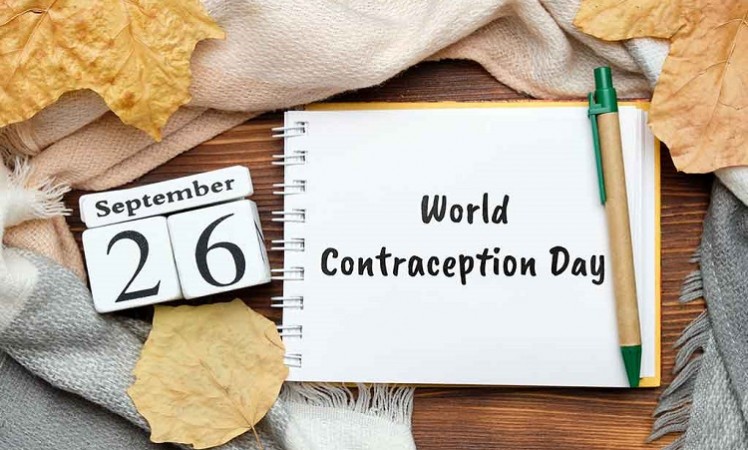
World Contraception Day 2023: World Contraception Day, observed annually on September 26th, serves as a crucial reminder of the importance of reproductive health and family planning. Access to reliable contraception methods is not only a fundamental human right but also a significant factor in promoting gender equality, reducing unintended pregnancies, and improving overall public health. In this article, we will explore various contraception options, their proper usage, and the critical role they play in our lives.
Contraception: A Necessity for All
Contraception, also known as birth control, encompasses a wide range of methods and devices designed to prevent unintended pregnancies. It provides individuals and couples the freedom to make informed decisions about when and if they want to have children, allowing them to pursue education, careers, and personal goals while maintaining control over their reproductive health.
Types of Contraception:
Barrier Methods:
Condoms: Male and female condoms create a barrier, preventing sperm from reaching the egg.
Diaphragms and Cervical Caps: These are silicone devices that block the cervix, preventing sperm from entering the uterus.
Hormonal Methods:
Birth Control Pills: Oral contraceptives contain hormones that prevent ovulation and thicken cervical mucus, making it difficult for sperm to reach the egg.
Birth Control Patch: A patch is applied to the skin and releases hormones to prevent pregnancy.
Birth Control Injections: An injection of hormones is administered every few months to provide contraception.
Implants: A small, flexible rod is inserted under the skin, releasing hormones for several years.
Intrauterine Devices (IUDs):
Copper IUD: This non-hormonal device prevents pregnancy by affecting sperm motility and the uterine lining.
Hormonal IUD: Releases hormones locally in the uterus, preventing pregnancy for several years.
Permanent Methods:
Sterilization: Surgical procedures, such as tubal ligation (for females) and vasectomy (for males), permanently block the fallopian tubes or vas deferens, respectively.
Choosing the Right Contraception:
Selecting the most suitable contraception method depends on factors such as age, health, lifestyle, and personal preferences. It is crucial to consult with a healthcare provider who can offer guidance based on individual needs. Considerations may include:
Effectiveness
Convenience
Side effects
Reversibility
Affordability
How to Use Contraception Effectively:
Using contraception effectively requires following instructions carefully:
Barrier Methods:
Ensure condoms or diaphragms are used correctly every time.
Use a water-based lubricant with condoms to prevent breakage.
Hormonal Methods:
Take birth control pills at the same time daily.
Replace patches or injections according to the prescribed schedule.
Verify the implant's presence regularly if it's under the skin.
IUDs:
Have an IUD inserted by a healthcare professional.
Check for the IUD's strings monthly to ensure it's in place.
Permanent Methods:
Understand that sterilization is permanent and should be considered only if you are certain you do not want more children.
On this World Contraception Day, let's celebrate the progress made in advancing reproductive health rights and encourage informed decisions about contraception. By understanding the available options and using them correctly, individuals and couples can take control of their reproductive choices, leading to healthier lives, thriving families, and a more equitable society. Remember, the power to plan your future begins with the choices you make today.
How to Prevent Premature Aging: Effective Strategies to Follow
Why Do People Begin Cheating on Their Partners? Study Reveals
How does celibacy affect your health?